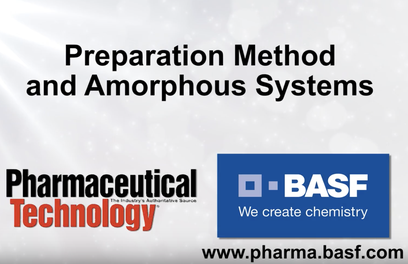- Home
- Blog
- News
- Basics
- Sources
- Agencies, Regulatory & Organisations
- CERSI Excipients Browser
- Excipient Report
- Excipient DMF List
- EXCiPACT Certified Companies
- Excipient Documentation
- Excipient EINECS Numbers
- Excipient E-Numbers
- FDA Inactive Ingredient List
- FDA GRAS Substances (SCOGS) Database
- IPEC Americas
- USP - U.S. Pharmacopeia
- Definitions
- Whitepapers / Publications
- Supplier
- Services
- Media
- Events
- 1st pharmaexcipients Poster Award
- Event Calendar
- Events featured by pharma-excipients
- 4th Annual Formulation & Drug Delivery Congress
- DDF Summit
- ExcipientFest Americas
- ExcipientFest Asia
- Global CompliancePanel
- International Conference and Exhibition on Pharmaceutics & Novel Drug Delivery Systems
- Formulation & Drug Delivery USA Congress
- Laboratory Medicine 2018
- Making Pharmaceuticals Europe
- Making Pharmaceuticals Exhibition
- Pharma Integrates
- PharmaExcipients China @CPhI China
- TTC Technology Training Center
- Jobs
- Online Sourcing
- Contact
18. April 2018
A video explanation by Dr. Thomas Rades featured by Pharmatech and BASF. The preparation method is crucial in solid amorphous systems. “It really matters how we prepare them – depending on the method we are using, we are landing somewhere else on the energy landscape.” In this feature with Pharmtech, Dr. Thomas Rades from University of Copenhagen explains different preparation methods and their consequences for the stability of amorphous systems.
15. December 2017
Formulators usually face three kinds of challenges while addressing sensory quality. Firstly, when existing products are changed, the sensory properties should feel the same for customers and patients. In addition to that, sensory problems like formulations that are too greasy, sticky or contain other negative feelings must be tackled. Lastly, you should send positive and beneficial sensory messages to the patients while designing the formulation.
15. December 2017
With air as another phase, foams have their unique set of challenges – but also offer opportunities. Learn why looking at the end-formulation and considering interactions is crucial for the right selection of excipients.
11. July 2017
Orally disintegrating tablets (ODT), are an innovative solid oral dosage form that is becoming more and more important in the pharmaceutical market, both for prescription and over-the-counter medications. In contrast to classical tablets, ODTs are specifically designed to disintegrate directly in the patient's mouth. The disintegrated tablet can then be swallowed easily without any resistance. BASF offers a comprehensive set of excipients that help you to easily formulate your active ingredient
13. October 2016
Easy to swallow and featuring an attractive translucent appearance – soft gelatine capsules or softgels have become one of the most popular dosage forms for a variety of pharmaceutical products. The BASF softgel portfolio offers leading-edge functional excipients to help customers achieve the best possible results for each element of their capsules – whether coating, shell, or fill. Furthermore, all ingredients have been tested according to the highest quality standards to minimize the...
29. September 2016
BASF announced on Sept. 27, 2016, the opening of a new plant for the manufacturing of polyvinylpyrrolidone (PVP) at the BASF site in Shanghai, China. The plant will produce PVP K30 powder, a polymer used as a base for several applications including pharma excipients. The site is equipped with production facilities, a quality control laboratory, and warehousing capacity. The facility operates in compliance with local and international Good Manufacturing Practice standards, including those...
29. April 2016
Orally disintegrating tablets (ODT), are an innovative solid oral dosage form that is becoming more and more important in the pharmaceutical market, both for prescription and over-the-counter medications. In contrast to classical tablets, ODTs are specifically designed to disintegrate directly in the patient's mouth. The disintegrated tablet can then be swallowed easily without any resistance. BASF offers a comprehensive set of excipients that help you to easily formulate your active ingredient...
21. April 2016
In regard to line extensions or improving administration convenience, orally disintegrating tablets (ODTs) have become a popular dosage form over the last years. Nowadays, the formulator has some ready-to-use aids on hand, allowing quick and simple drug formulation [1]. The application of these ready-to-use aids is limited, though. Certain formulation aspects such as high drug load or dedicated market demands (e.g. price sensitive markets) might call for customised ODT formulations. In order to...
01. March 2016
The emerging trends in the combinatorial chemistry and drug design have led to the development of drug candidates with poor water solubility. Issues associated with poor solubility can lead to low bioavailability, resulting in suboptimal drug delivery. About 40% of drugs with market approval and nearly 90% of molecules in the discovery pipeline are poorly water-soluble. With the advent of various insoluble drug delivery technologies, the challenge to formulate poorly water-soluble drugs can be...
24. January 2016
Original Link



